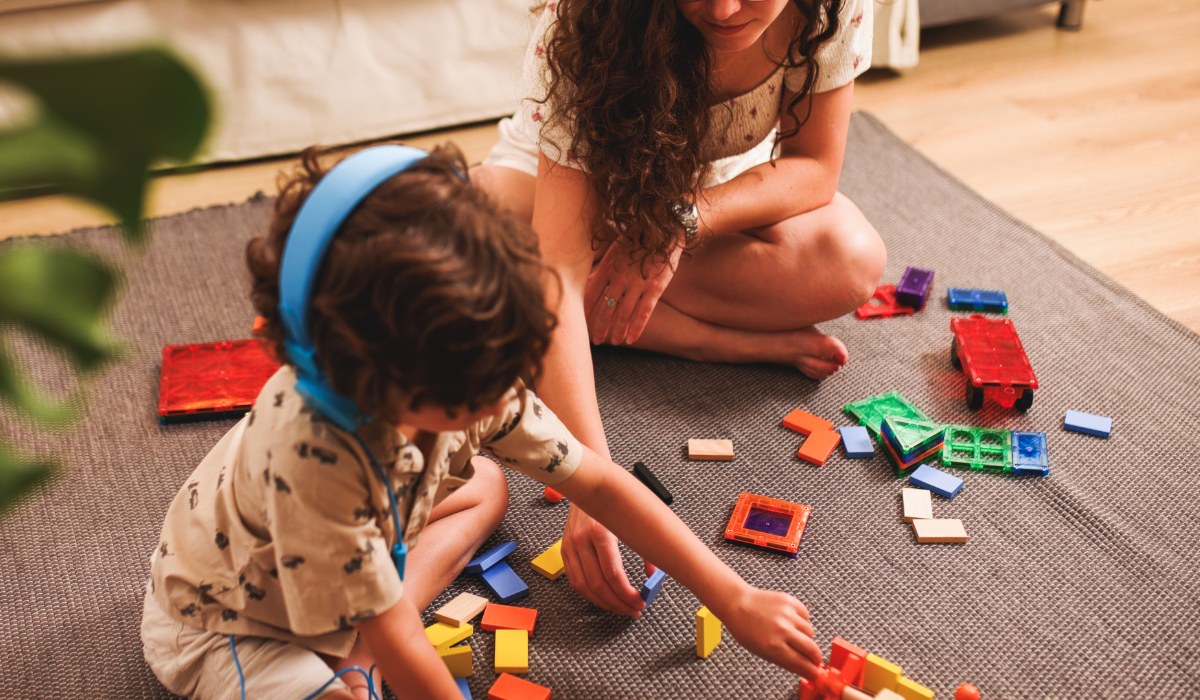Routines & Rituals in Autism: Coping Skill or Obsession?

Written By:
Fact-checked By:
October 3, 2025
Routines and rituals in autism often give comfort but can feel restrictive. Learn why they matter and how to support your child through change.

Key Points:
- Routines and rituals in autism can provide comfort and predictability but sometimes feel restrictive.
- Distinguishing between healthy coping skills and rigid behaviors helps parents support their child.
- ABA therapy can guide families in balancing flexibility with the benefits of structure.
For many children on the autism spectrum, routines and rituals aren’t just preferences—they’re lifelines. A consistent bedtime sequence, eating the same food every morning, or lining up toys in a particular order may look like quirks to outsiders. But for autistic children, these patterns often serve as anchors in a world that feels unpredictable.
Parents often ask: When is my child’s need for routine a coping strategy, and when does it cross into obsession? Let’s take a closer look at why routines matter, when they become limiting, and how you can gently guide your child toward balance.
Families with questions or those exploring support options often turn to evidence-based approaches like ABA Therapy to better understand their child’s unique strengths and needs.
Why Routines Matter for Children with Autism
Autism and routines are deeply connected. Predictability offers children a sense of control, especially when sensory input or social situations feel overwhelming. By repeating familiar patterns, children know what to expect—and that predictability can lower stress and anxiety.
Routines also support executive functioning. Many children with autism have difficulty transitioning from one task to another. A clear, predictable sequence—wake up, brush teeth, eat breakfast—helps them move through their day with fewer disruptions.
But not all routines are created equal. Some serve as adaptive coping tools, while others can turn rigid and limiting. Understanding this difference is key for parents who want to encourage growth without removing the comfort of predictability.
Coping Skill or Obsession? Spotting the Difference
It’s important to recognize whether your child’s rituals are flexible enough to adapt to life’s natural changes—or whether they’ve become rigid patterns that cause distress.
Here are some signs that can help you distinguish between coping strategies and restrictive behaviors:
- Coping Skill: Your child follows a bedtime ritual (bath, pajamas, story) but is able to skip the story if you’re running late without experiencing extreme distress.
- Obsession: Your child insists on the exact same brand of pajamas every night, and if they aren’t available, bedtime becomes a meltdown.
- Coping Skill: Your child lines up toys as a calming activity but can still participate in play with siblings or peers when encouraged.
- Obsession: Your child refuses to play in any other way and becomes inconsolable if someone moves a toy out of line.
- Coping Skill: Your child likes eating the same breakfast each morning but can tolerate small changes like a different fruit or plate.
- Obsession: Your child refuses to eat anything unless it’s served in the same bowl, prepared in the exact same way.
When routines tip into obsession, they can restrict learning opportunities, limit social interactions, and increase anxiety rather than reduce it.
The Comfort Behind Repetition
Before labeling a behavior as obsessive, it’s worth remembering why repetition feels so good for children with autism.
- Predictability lowers anxiety. Knowing what’s coming next helps children conserve energy and reduces sensory overload.
- Repetition builds mastery. Practicing the same action again and again strengthens learning and motor skills.
- Structure provides safety. In a world filled with unpredictable noises, lights, and social demands, rituals create a safe, familiar space.
When viewed through this lens, routines are not just habits—they’re deeply meaningful strategies that help children regulate emotions and navigate uncertainty.
When Rituals Become Roadblocks
Even the most comforting routines can become roadblocks if they interfere with growth. Parents often notice struggles in three main areas:
- Social Development: Children may avoid playdates, school activities, or family outings if they disrupt a routine. This can make it harder to form friendships and practice social skills.
- Flexibility and Problem-Solving: Life rarely goes exactly as planned. If a child can’t adapt when a schedule changes—even slightly—it can lead to meltdowns and limit independence.
- Daily Functioning: When rituals take over (like needing to tap a door five times before leaving), everyday tasks become stressful, time-consuming, and exhausting for the whole family.
Recognizing these roadblocks is the first step in helping children find balance between comfort and flexibility.
5 Practical Strategies for Parents
Supporting a child with autism through routines and rituals isn’t about removing structure—it’s about gently expanding it. Here are some strategies that parents often find effective:
1. Introduce Small Changes Gradually
Sudden change can feel overwhelming. Instead, add tiny adjustments over time. For example, if your child always eats with the same spoon, introduce a new spoon for just a few bites, then gradually increase its use.
2. Use Visual Schedules
Visual schedules give children a roadmap of what to expect. These can include pictures, icons, or written steps. When you need to adjust the routine, update the visual schedule so your child sees the change coming.
3. Offer Choices Within Structure
Choices provide a sense of control while still keeping predictability. For example, at bedtime you might say, “Do you want to read this book or that book?” instead of removing the reading ritual entirely.
4. Practice Coping Skills for Change
Teach calming strategies—deep breathing, sensory tools, or a comfort object—that your child can use when routines don’t go as planned. Over time, this builds resilience.
5. Reinforce Flexibility With Praise
When your child adapts, even in a small way, acknowledge it: “I noticed you used a different cup today. That was really flexible of you.” Positive reinforcement encourages growth.

The Role of ABA Therapy in Supporting Flexibility
Applied Behavior Analysis (ABA) therapy provides structured strategies to help children with autism balance their need for routine with the ability to adapt.
A Board Certified Behavior Analyst (BCBA) designs personalized interventions that:
- Assess whether a ritual serves a helpful purpose or has become restrictive.
- Teach replacement behaviors that still give comfort but don’t limit daily life.
- Use reinforcement to build tolerance for small, gradual changes.
- Incorporate parent training so families feel empowered to support flexibility at home.
Treetop ABA Therapy often works with parents who feel torn between respecting their child’s rituals and encouraging growth. By breaking big goals into smaller, achievable steps, ABA therapy helps children gain confidence in handling life’s unpredictability.
Helping Your Child Grow Beyond Rituals
Supporting a child with autism isn’t about choosing between structure and freedom—it’s about helping them find balance. Routines can be deeply comforting, but flexibility is what allows children to thrive in school, relationships, and everyday life.
If you’re navigating this balance and want professional support, ABA therapy can make a difference. At Treetop ABA Therapy, we specialize in helping children build resilience while respecting their need for comfort and predictability.
Whether you live in ABA therapy in Arizona, Colorado, Georgia, New Mexico, or Oklahoma, our team is here to guide your family. Contact us today to learn how ABA therapy can help your child embrace both structure and growth.
Similar articles
Reaching New Heights With The TreeTop ABA Therapy
Our mission is to help improve the lives of children with ASD and their families with home and community based ABA therapy.

